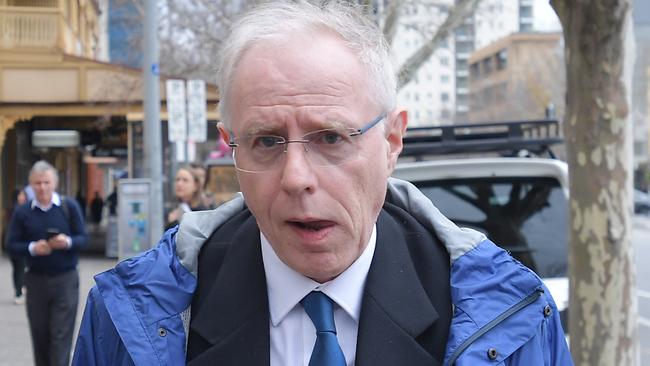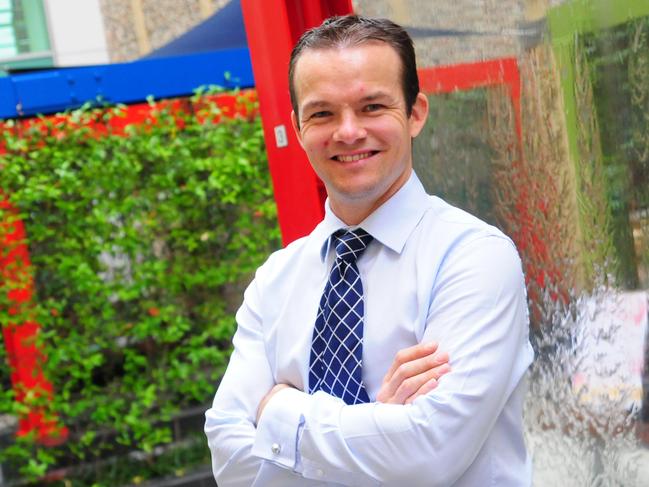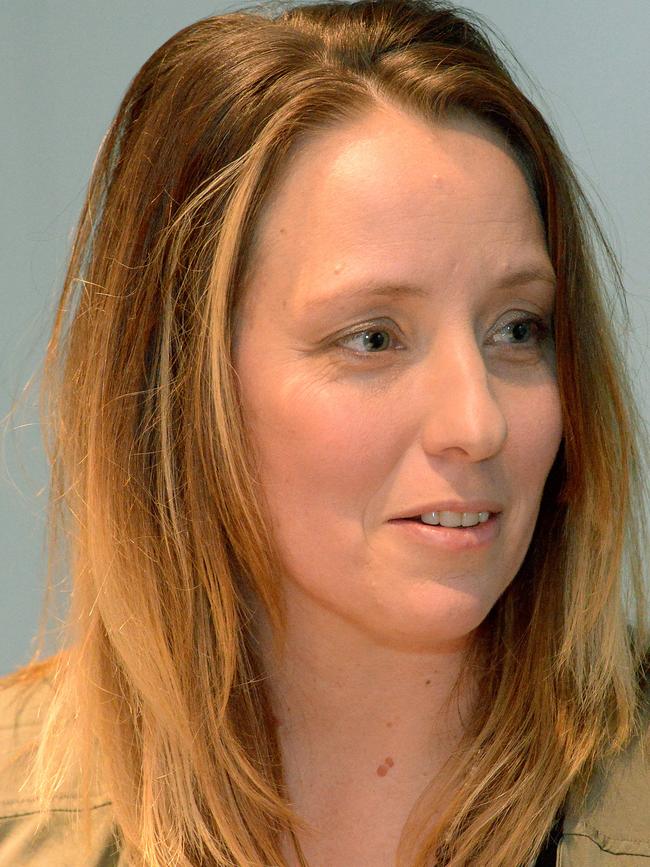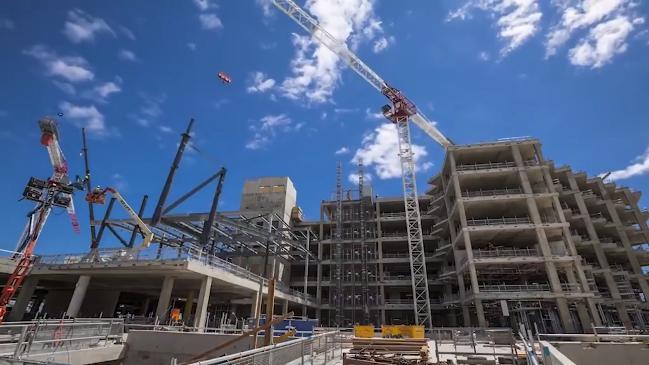The public deserves answers, but SA Health defaults to secrecy as more questions emerge over RAH stroke service rosters
SA HEALTH likes its secrets. When we asked a series of specific questions about the latest stroke rostering debacle, we got a vague two-line response. And on radio this morning, a senior RAH spokesman said media scrutiny of the issue was “not helpful” as he avoided answering direct questions — read the transcript.

Opinion
Don't miss out on the headlines from Opinion. Followed categories will be added to My News.
- Deja vu — Senior RAH stroke specialists book overlapping holidays
- Original story: Two stroke patients die while specialists were away
- Replacement doctor goes on maternity leave
- Extraordinary evidence of bullying and rorting at RAH stroke inquest
SA Health likes its secrets. When the RAH’s only two specialists accredited to suction blood clots from the brains of stroke victims both took holidays at the same time, two patients died.
Officials only reported one death to the Coroner. And neglected to mention that no specialist was rostered on who might have been able to save the patient.
Coroner Mark Johns only found out the details, and of the second death, when he read it in The Advertiser.
When The Advertiser initially found out about the situation and asked if there had been any adverse events, the question was ignored and instead a statement was issued saying patients received “appropriate” care.
It took considerable investigation to find there had actually been two deaths.
Now, the stroke unit continues to evade scrutiny, as two specialists go on holidays, leaving just one — a relatively junior radiologist — to provide 24/7 cover for 10 days.
This is despite unit head Associate Professor Tim Kleinig previously warning colleagues that having even two people on the 24/7 roster “puts SA Health at extreme medico-legal risk and would be indefensible in the media”.

On Monday, The Advertiser sent SA Health a list of questions about allowing the two senior specialists to again go on leave at the same time, leaving just one newly-appointed specialist to provide around-the-clock coverage.
These included seeking confirmation the two specialists were both rostered on leave at the same time; how long for; whether a recently recruited interstate doctor had injured himself in an accident; whether he is still able to work as a result of the accident; and if anyone’s leave had been cancelled as a result of the accident.
SA Health ignored most of the questions and sent a two-sentence response from SA Medical Imaging’s Dr Jim Buckley:
“Interventional neuroradiologist cover will continue to be provided at the RAH, with a full-time interventional neuroradiology (INR) specialist available. We have secured some additional support from an alternative SA-based INR specialist, and we’re looking at other options to provide further cover during this period.”
It also sent a background note confirming the interstate locum now could not work at the RAH.
Dr Buckley was on ABC Radio Adelaide this morning, where he dodged most questions from host Ali Clarke — you can read the full transcript below.
Asked if it was true the two specialists were both rostered on holidays, he said “there is really no reason for anybody to be concerned about the situation”.
Pressed on whether two specialists were both going on holidays at the same time, he said: “I think we really shouldn’t be discussing this, this is not helpful.”
He insisted there is “robust” 24/7 cover and “there is really no reason for anybody to be concerned”.
He said claims the doctor who will be on call 24/7 for 10 days had previously been rejected for the job due to her inexperience were “completely wrong” — despite this being the evidence given to the coronial inquiry now underway.
So there you have it. All this scrutiny is unhelpful. And we should not be discussing it.
Or as former Queensland Premier Joh Bjelke-Petersen said: “The greatest thing that could happen to the state and nation is when we get rid of all the media … then we could live in peace and tranquillity and no one would know anything.”
INTERVIEW TRANSCRIPT
ABC Radio Adelaide’s Ali Clarke this morning interviewed Dr Jim Buckley, head of medical imaging at the Royal Adelaide Hospital, over an exclusive report on The Advertiser’s front page.

AC: Is it true that two senior specialists will again be going on holidays at the same time?
JB: It’s true that there is excellent cover in place and there is really no reason for anybody to be concerned about the situation in regards to the INR cover at the Royal Adelaide Hospital.
AC: OK, but is it true that there are two senior specialists that will be on holidays again? Regardless of what cover you have put in and around it.
JB: I think we really shouldn’t be discussing this, this is not helpful. What matters is that the cover that is available, the INR cover is robust, it’s 24/7, it is covered by fully qualified INR radiologists and the situation should really cause no alarm.
AC: OK, with respect I have heard you say that we shouldn’t be talking about this, it is front page of the paper courtesy of Brad Crouch and do you not think people might be entitled to just wonder what’s going on, considering there is currently a coronial inquest and part of that is questions on rostering within the stroke unit?
JB: The fact that there is a coronial inquest on is the reason why it is very difficult for me to say very much, so I have to be very careful with what I say, and that’s really why I am telling you repeatedly that there is good, robust cover in place and there is no reason for anybody to be in any way alarmed. The people of South Australia will be getting excellent service from fully qualified staff.
AC: Who will be in charge?
JB: Who will be in charge of the INR? I really think mentioning names is not very helpful because there are issues of confidentiality here that I don’t want to breach, particularly with the inquest ongoing.
I have to careful but the person in charge is fully qualified, very experienced. Very experienced in stroke treatments, mechanical thrombectomies for stroke, and they are ably assisted by other very skilled, qualified people.
AC: So claims that one of those doctors, made in the paper today, originally didn’t get a senior position because they were too inexperienced. Are you saying that that’s false?
JB: That’s completely wrong, that is completely wrong, yes.
AC: So what sort of period are we talking about that will need to covered and that this other coverage has been put in place for, Dr Buckley?
JB: Um, we’re talking about a period … well there’s full cover and there has been full cover, this cover was in place originally and this will be over a period of approximately 10 days.
AC: OK, how many people in Adelaide can provide this really specialised stroke treatment because from my understanding this is the interventional neuro-radiology specialist, so — please correct me if I’m wrong — these are the people that can go in and get the blood clot out of the brain?
JB: No, that is correct.
AC: OK, so how many people in Adelaide can provide this very specialised stroke treatment and how many do you think you would need to cover South Australians?
JB: The number of people in South Australia who can provide this cover, are four in total. How many people would we need? Well this is speculation, really. I think we need to understand the context of this.
There are a very small number of people qualified to perform this work in the whole of Australia and New Zealand, its 35-40 people, so there are not that many people. In terms of ideal, I think that’s something that we are working on, we worked very hard on this, we’re continuing to work on it so that the already good level of cover is further improved in the future. This is ongoing and constant.

AC: So there’s my question again then, if there are 35-40 people who can provide this service in Australia and New Zealand, why then allow them to go on holidays at the same time? In an area, like South Australia, why send two people and allow them to roster themselves and be able to go on holidays together … and not give yourself a little bit of a buffer zone?
JB: South Australia is not unusual in this sort of arrangement, there are similar arrangements in other parts of Australia and New Zealand, so we’re not unusual in this, people as you say do need their holidays, this is very stressful work, it’s very important people don’t suffer burnout.
We have to allow people to have their rest, the point is that very acceptable, robust cover is in place and that is surely what matters.
AC: OK, so just to clarify then, if four people in Adelaide can perform these treatments will one of the four be rostered on at all times? Or is there a position coming up for a 10-day period, that 50 per cent of this group, this specialised group will be away on holidays at the same time?
JB: I think you’re asking the same question.
AC: I guess I’m just trying to get a really specific answer.
JB: I’m giving you the answer that I think is important, that the cover is complete, 24/7 throughout this period, there is assistance by other qualified people and there is no reason for anybody to be concerned about the quality of cover for the INR service for South Australia.
AC: OK, and thank you for saying that. I guess though when you don’t answer specifically I’m going to have to take that as a no, I would imagine.
JB: You have to take what as a no, sorry?
AC: Well that there would be, or could be, a period of 10 days coming up where two of the four people here in South Australia that do this particular skill could be rostered off at the same time, on holiday?
JB: I have already said that that is the case, yes, but that is routine pretty well everywhere in Australia. This is not unusual for South Australia. No, no but it’s important that we agree on this, that this is not an unusual situation for Australia, this is a normal situation.
AC: And you’re happy with all the coverage? OK.
JB: I am happy that there is excellent coverage, yes.
AC: Okay, thank you Dr James Buckley, the head of medical imaging at the Royal Adelaide Hospital.


